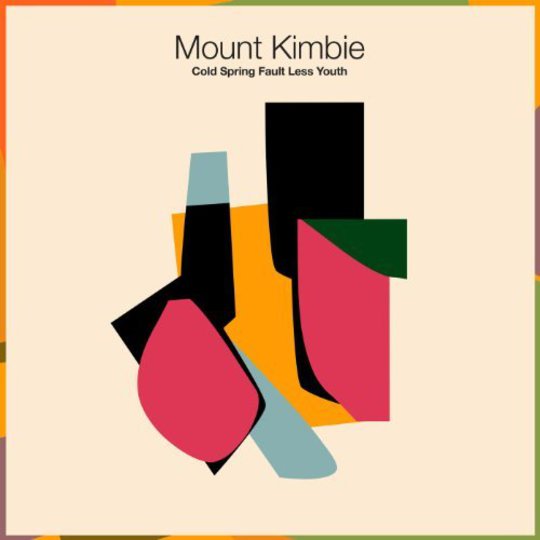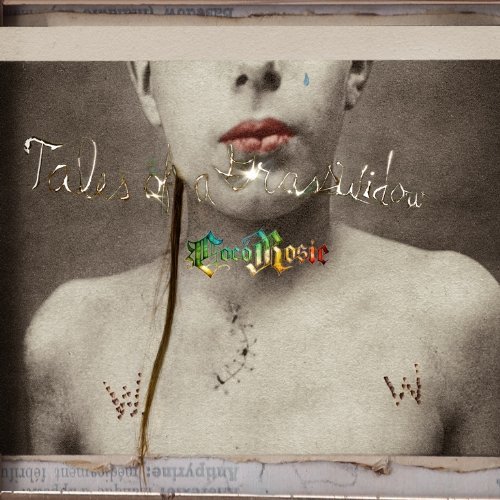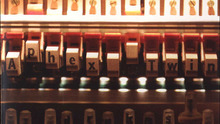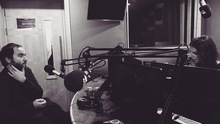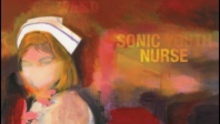When dull torso-nodding dubstep shattered into a plethora of delightful subgenres, Mount Kimbie’s Crooks and Lovers was the standard bearer of an exciting new scene. A few years later, the question remained: what direction they would go in? Would Kai Campos and Dom Maker echo Joy Orbison and move into darker, more aggressive techno, or go the way of James Blake and continue as normal, making music amusingly described by Dem Hunger’s Twitter alter-ego Susie Sahara as sounding like 'he just got mugged and fucked'?
The first hint of Cold Spring Fault Less Youth’s direction came with the appearance of ‘Made to Stray’ on a Ben UFO Rinse FM podcast, a YouTube rip of which soon spread across social media. Beginning with a frenetic woodblock beat, it hinted at a departure from the melodic wooze of their earlier releases to a more dancefloor-orientated approach, with each element from fluttering trumpets to steady organ chords looping in with ever more reverb. And then, wait... is that Friendly Fires? Why are they singing, and why exactly have they ruined a perfectly good dance track? Then came the release of ‘Rust and Bone’, lacking completely the upbeat and so very ‘now’ feel of its predecessor and with an even bigger focus on those vocals. The immediate impression was that of disappointment, that such early promise had been wasted in an effort to become accessible and more radio-friendly. ‘You Took Your Time’ featuring the lazy and seemingly try-too-hard urban rhymes of King Krule only served to underline this.
Theirs was a dilemma faced by almost any artist who makes the 'mistake' of releasing a debut that is simply too good, and likewise mine in being a fan that expects too much from a follow up. In an age where songs, artists, genres and trends are picked up and dropped at a second’s notice, one of the advantages of having to review something is being forced to fight the urge to cast it upon the scrapheap at the first twinge of disapproval, and give it a second, third and fourth chance. Often this will just accentuate the negativity into 500 words of bile, but ever so often your eyes are opened to a quality that isn’t initially apparent.
CSFLY is not anything like Crooks and Lovers. It is still very Mount Kimbie, with the fuzzy organ warbles and splashes of colourful synth weaving a distinctive backdrop to proceedings, but on the face of it they have moved from being simply producers to being a band. Gone are the clipped and pitch-shifted female vocals, down-played is the stumbling garage-y percussion, and in their stead is live-sounding instrumentation, the voices of Campos and Maker and heavy doses of reverb and delay.
It starts with ‘Home Recording’, which begins like the moment of revelation from a TV crime show, featuring a blast of synth and saxophone, which then falls away into organ chords and echoing guitars that could have been sampled from The xx. It is here that they are at their most indie, when the melancholic vocals join the lo-fi wooziness and shuffling percussion.
Whilst publicity material, the initial reaction to the singles released thus far, and indeed this review has focussed largely on the introduction of singing to their music, much of the album is made up of instrumental and electronic compositions. The best of the lot is ‘Slow’, featuring meaty drums and a squealing melody, whilst closing track ‘Fall Out’ features a lackadaisical bass riff backed by frenetic percussion, giving it a nervously lazy feel.
Despite having been almost entirely produced on a computer, the entire album has a very ‘live’ feel about it, where every element, from the vocals to wailing sax have rough lo-fi edges, making you feel like you are right there in the studio. It is these atmospherics which marks Mount Kimbie as the latest act to react against the sterile, sharp and over-produced dance music which has infected the charts recently, instead giving their songs a human and charming feel.
Likewise, the two contributions from King Krule, ‘You Took Your Time’ and ‘Meter, Pale, Tone’. Whereas his voice initially grated, as his laconic drawl awkwardly works itself around vowels, its suitability and almost symbiotic relationship with the music grows as the ear becomes accustomed. What he says doesn’t matter as his voice acts as an instrument, creating hazy atmospherics in which your mind can wander.
What separates average or simply decent artists from those who are truly ground breaking is the constant desire to move forward. As the world spins ever faster, standing still will not only welcome derision, but will render an artist ultimately irrelevant and forgotten. In describing their approach to CSFLY and their reaction to the acclaim that followed Crooks and Lovers, Campos observed that 'in that situation you’re flattered that people are paying attention to you, so naturally you think, "I’m doing something right here", and gravitate towards doing similar things. But at some point you’ve got to take a step back and say, "This is no longer what I want to do"'. And more importantly, as Maker has said, 'two years is a long time, tastes change, what you want out of your life changes, and so on. Naturally, how we want to sound has changed too'.
Mount Kimbie's initial approach to post-dubstep was fresh, original and ridiculously influential, but they needed to change, and change they did. What at first might have appeared as a cynical attempt at increasing their accessibility, has, for these ears anyway, demonstrated the same distinctive originality which won over so many people in the first place. Only time will tell whether CSFLY turns out to be as seminal as Crooks and Lovers, but that isn’t important. What is important is that it’s an accomplished, interesting and thoroughly enjoyable body of work that will be played again and again and again, on the radio, at festivals and in bedrooms the world over.
-
7Alex Baker's Score
-
8User Score

